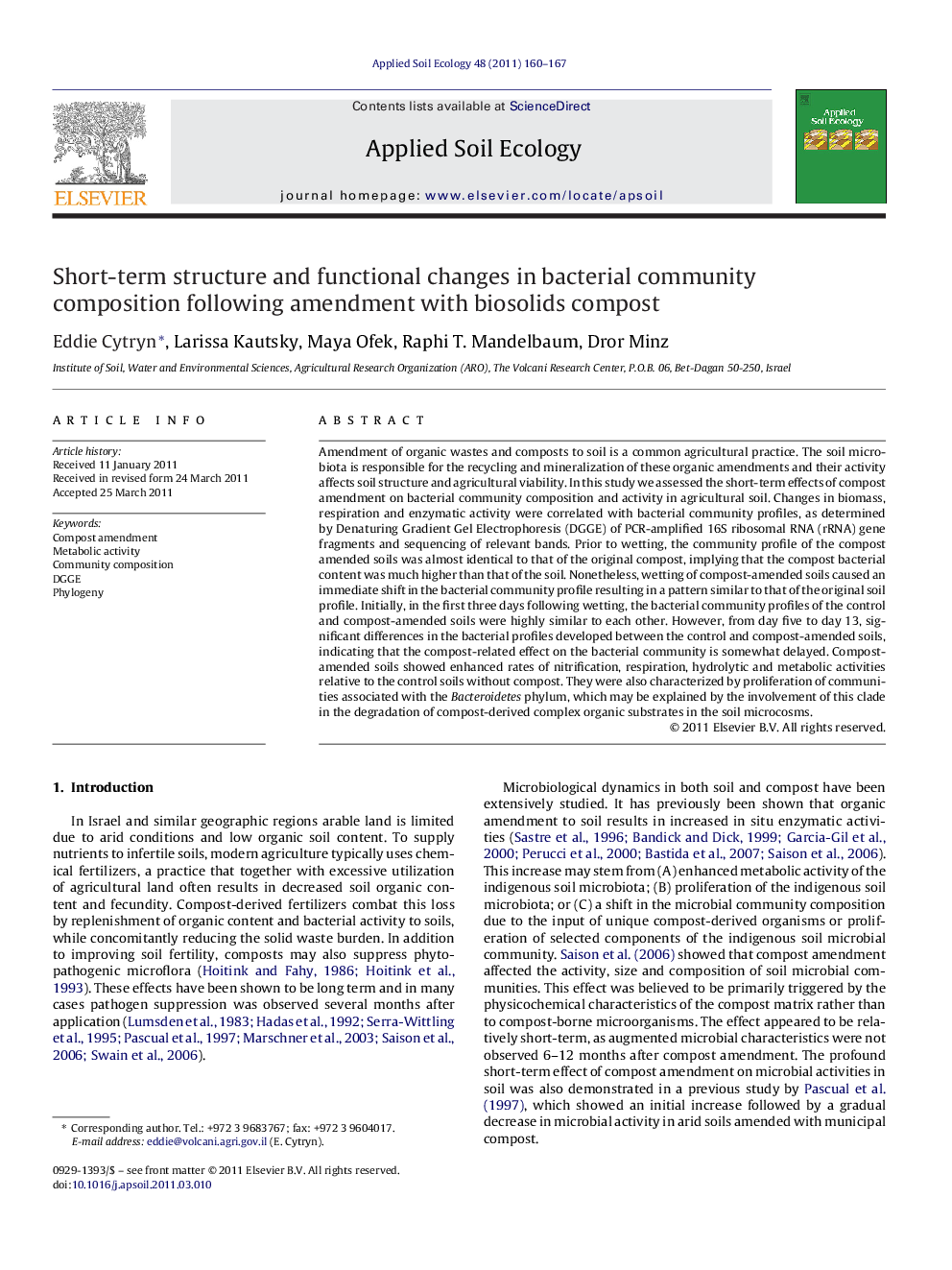| کد مقاله | کد نشریه | سال انتشار | مقاله انگلیسی | نسخه تمام متن |
|---|---|---|---|---|
| 6297929 | 1304225 | 2011 | 8 صفحه PDF | دانلود رایگان |

Amendment of organic wastes and composts to soil is a common agricultural practice. The soil microbiota is responsible for the recycling and mineralization of these organic amendments and their activity affects soil structure and agricultural viability. In this study we assessed the short-term effects of compost amendment on bacterial community composition and activity in agricultural soil. Changes in biomass, respiration and enzymatic activity were correlated with bacterial community profiles, as determined by Denaturing Gradient Gel Electrophoresis (DGGE) of PCR-amplified 16S ribosomal RNA (rRNA) gene fragments and sequencing of relevant bands. Prior to wetting, the community profile of the compost amended soils was almost identical to that of the original compost, implying that the compost bacterial content was much higher than that of the soil. Nonetheless, wetting of compost-amended soils caused an immediate shift in the bacterial community profile resulting in a pattern similar to that of the original soil profile. Initially, in the first three days following wetting, the bacterial community profiles of the control and compost-amended soils were highly similar to each other. However, from day five to day 13, significant differences in the bacterial profiles developed between the control and compost-amended soils, indicating that the compost-related effect on the bacterial community is somewhat delayed. Compost-amended soils showed enhanced rates of nitrification, respiration, hydrolytic and metabolic activities relative to the control soils without compost. They were also characterized by proliferation of communities associated with the Bacteroidetes phylum, which may be explained by the involvement of this clade in the degradation of compost-derived complex organic substrates in the soil microcosms.
⺠Short-term effects of compost on soil bacterial community and activity were assessed. ⺠Bacterial consortia of control and compost-amended soils were initially similar. ⺠From day 5 the compost-amended consortia shifted, while the control remained stable. ⺠Compost-amended soils showed enhanced enzymatic activities relative to control soils. ⺠Macromolecule-degrading Bacteroidetes strains proliferated in compost-amended soils.
Journal: Applied Soil Ecology - Volume 48, Issue 2, June 2011, Pages 160-167